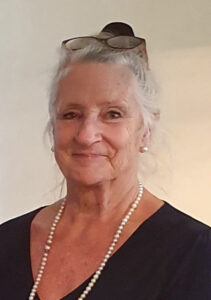As CEO of registered charity Future Living Hertford it was really challenging moving our services from face to face over to online during the COVID pandemic…. and at a moments notice. I think everyone breathed out when it was all finally over and we could get back to a ‘normal’ life. Since then I’ve been wondering what normal now means.
Going online…..
I’ve noticed many charities have embraced technology. With many moving over to online working. This seems to be the case even though we work in a therapeutic manner. We know that to work successfully and therapeutically with clients, it is much more beneficial to be in the room and face to face. Clients recognise a safe space, a routine, a friendly human face and, most importantly, body language is evident.
Today’s online working reduces these opportunities for both the client and the therapist. Do we know the client is safe on a laptop for example, is anyone else in the room, are there children within earshot or other adults, can clients focus on just themselves rather than their familiar surroundings and distractions? All questions we cannot answer if we are not in the room together.
The beauty of human interaction….
As a counsellor myself I was taught to look for the mismatch in what was being said as opposed to bodily reactions and facial expressions. This informed my practice and what I was learning from my client and what they were telling me. Sometimes people can’t express themselves with words and therefore other body languages are vital to the therapeutic relationship. This is not clear when online.
Online working is much cheaper to offer with no office overheads and heating costs. Anyone can do it if they are trained, but does it offer real value for money for the client? In a world where we rush from A to B, convincing ourselves that we haven’t got time to take an hour out for therapy, are we being fair to our needs? The very act of ring fencing a time to put ourselves and our needs first, is an imperative part of the therapeutic process of recovery from any kind of trauma.
The cost to the client….
As a nation we are looking for ways to simplify, cheapen and make the most of business opportunities that come our way. I do wonder at what cost to the client for therapy. Face to face working seems to be a thing of the past but it’s that human connection that improves all round mental wellbeing. Having someone there just for you – and not some distant face on a computer or the telephone. How long before that person’ online becomes Ai? Some professions are best retained in the original format and I believe that counselling is one of them.
I think we are in real danger of reducing therapy to yet another very easily accessible service online. One without much benefit, and merely skimming the service of client needs. Something that should be at the heart of all that we do.
What our clients say….
If you ask our clients at Future Living they will say that the benefit is in the human connection. The feeling of being important enough to be heard. As well asomeone setting aside that time just for them, to really connect with their emotions.
COVID did incomprehensible damage to our world and society itself, let us not allow it to reduce amazing services to a shopping trolley occurrence rather than a really meaningful experience.
I am really proud of the fact that Future Living has retained it’s practice, offering clients an affordable counselling service. Our clients attend each week, with the comfort and peace of mind that their counsellor will be there, in person and ready to listen. The counselling service we offer is reliable and set in a beautiful building right in the heart of Hertford, with easy access links making it accessible to all.

By Sandra Conte
Future Living Founder and CEO







